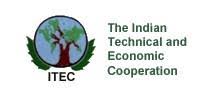Federal Migration Law
Article 37
In order to enter the country, foreigners shall:
I. Present the following documents at the immigration checkpoint of the Institute:
a) Passport or identity document and travel document that is valid in accordance with current international law; and
b) When required, a valid visa, in terms of article 40 of this Law; or
(c) Residence card or authorisation in the status of regional visitor, border worker visitor or humanitarian visitor.
II. Provide the information and personal data requested by the competent authorities within the scope of their powers.
Article 60. Regulations of the Migration Law
In order to authorise the entry of foreign nationals, the immigration authority, in the review filter, in case of doubt, may corroborate the requirements indicated below: I. Passport or identity and travel document that is valid under international law and, where appropriate, visa or immigration document; II. Information and personal data required; III. Reason for the journey; IV. Place of habitual residence or place of origin; V. Domicile and length of stay in the national territory; VI. If applicable, name, denomination or business name and address of the natural or legal person who will employ or invite him/her; VII: Activities in which he/she is engaged in his/her country or place of origin and those which he/she will carry out in the national territory; VIII. The means of subsistence during their stay in national territory, except in the case of foreigners holding a Mexican visa; and IX. The transport that will be used for their departure. In the event that the immigration authority notices that the foreigner does not meet the entry requirements, there is a migration alert, there are inconsistencies in the information, or lack of authenticity or veracity of the documents presented, the person will be sent for a second review. The immigration authority will carry out the second review of the passenger and will determine his admission to the national territory or rejection to the place of origin or to the place where he is admissible, having to justify and motivate its resolution. During the second review, the foreigner may state what he/she deems appropriate and exhibit the means of proof that he/she deems appropriate, which shall be assessed and analysed by the immigration authority in order to resolve the admission or rejection in accordance with the law, and shall be informed of the possibility of communicating with his/her consulate during the period of the second review.
In cases of persons who at the time of requesting their entry into the national territory claim to be Mexicans and the immigration authority has sufficient evidence to presume the lack of authenticity of the documentation they exhibit or in the elements they provide to prove their Mexican nationality, it shall determine what is appropriate with the elements at its disposal. The second review shall not exceed four hours. The same period of time shall be granted to the immigration authority in the case of foreign nationals subject to a second review, which may only be extended at the express request of the foreign national or his or her consular representative. In no case may the period exceed twenty-four hours.
Exceptions to the article. The original of the documents indicated in requirements 1, 2, 3, 3, 4 and 5 is required.
15-A of the LFPA.
Requirements:
1. Valid passport or identity and travel document that is valid under international law.
2. FMM duly filled in.
3. The foreign person benefiting from commitments assumed by the Mexican State, in addition to the aforementioned documents, must present one of the following documents:
a) Document accrediting permanent residence in Canada, the United States of America, Japan, the United Kingdom of Great Britain and Northern Ireland, any of the countries that make up the Schengen Area, as well as the member countries of the Pacific Alliance;
b) Valid unexpired visa from Canada, the United States of America, Japan, the United Kingdom of Great Britain and Northern Ireland or any of the countries that make up the Shengen Area;
c) APEC Business Traveller Card (ABTC) approved by Mexico;
d) Certificate accrediting him/her as a member of the crew of the aircraft on which he/she is arriving; or
e) Seaman's book, if he/she is a member of the crew of the vessel arriving at a Mexican port on an international voyage. If the crew member arrives by air to enlist in a vessel operating in a national port, he/she must present, in addition to the seaman's book, a document accrediting his/her enlistment, the details of the vessel and the Mexican port in which it is located.
4. The immigration authority may ask the foreigner to prove the reason for his/her trip, by means of any of the following documents:
a) Hotel reservation, return tickets (itinerary), tour tickets (itinerary).
b) Mandatory letter in Spanish language from the parent company, affiliate or foreign subsidiary indicating that the foreign person is an employee of the company and that the payment of the services to be rendered in the national territory will be paid for by the company.
c) Copy of the contract for the transfer of technology, patents and trademarks, purchase and sale of machinery and equipment, technical training of personnel, or any other contract related to the production process of a company established in Mexico or that links the foreign party to the Mexican party, or proof of appointment by the shareholders' meeting of companies legally established in Mexico.
d) Letter from a public or private organisation or institution inviting the foreigner to participate in an unpaid activity in national territory, stating the purpose of the visit and the estimated length of stay. In the event that the organisation or institution covers the costs of the foreigner's travel and stay in the national territory, a letter of sponsorship must be attached.
e) Letter of invitation or acceptance from an institution belonging to the National Education System to carry out courses, studies or research or training projects for a maximum of 180 days.
5. In the case of children or adolescents or persons under legal guardianship in terms of civil legislation, who are accompanied by a third person of legal age or who are travelling alone, they must present a document stating authorisation to leave the national territory from the persons exercising guardianship over them, granted before a notary public or competent authority. In the case of a document issued abroad, it must be legalised or apostilled, as the case may be, with its translation when it is in a language other than Spanish.
6. Where appropriate, provide the immigration authority with the information requested.
Resolution criteria:
Crew members of vessels in deep-sea navigation, who enter the national territory by sea in order to leave by air or in order to embark on another vessel to leave the country, or who enter by air to join a vessel operating in a Mexican port and leave the national territory, shall be documented with FMM in the condition of stay as a visitor without permission to carry out remunerated activities with a temporary stay of three calendar days.
Foreigners on the electronic lists of passengers and crew of cruise ships on international voyages, who disembark at any Mexican port to visit it or to visit the surrounding areas and board the same ship to continue their journey, shall be documented at the first port of arrival by means of the collective permit in the condition of visitor stay without permission to carry out remunerated activities with a validity of twenty-one calendar days.
Foreign nationals whose names appear on the general declaration or on the electronic lists of passengers, crew and means of transport are considered to be aircrew members on active service.
The migratory authority shall exempt from the presentation of the document indicated in numeral 3, paragraph d) of this form the members of the air crew in active service, when it verifies that their names are included in the general declaration or in the electronic lists of passengers, crew members and means of transport.
In these cases, foreign nationals shall be documented with FMM, in the condition of stay as a visitor without permission to carry out paid activities for a period of seven calendar days.
Important information for the user:
- The FMM will be issued by international transport companies and travel agencies. It is recommended to fill out the immigration form before arrival.
- If you proceed to immigration, the immigration officer will retain the entry section of the FMM. The foreigner shall keep the exit registration section of the FMM that certifies his/her regular stay in the national territory for the period of time indicated therein, and shall hand it in upon his/her departure from the national territory.









































